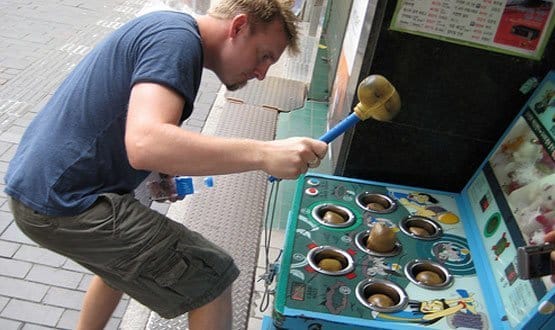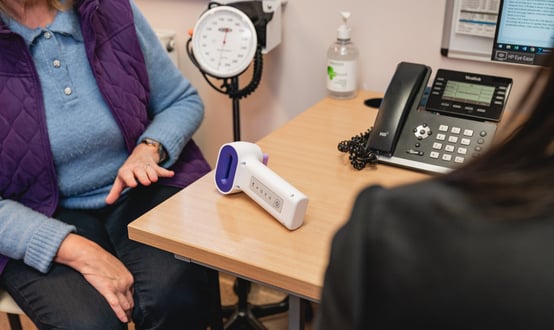Joe’s view from the school room
- 29 July 2013

Let me share a secret, which some of you may have spotted already; I don’t know what I’m talking about.
I don’t know anything about IT. Interestingly, neither do most of the people tasked with making decisions about NHS IT.
That’s OK, though, because there are some really clever people who can be asked to help. While I am not one of the clever people, I have learned something about them.
Back to school
I’ve been doing this clinical leadership malarkey for quite a few years now, but have probably never been more excited about doing it than I was last month, when the CCIO Leaders Network held its first summer school in Oxford.
As I stood at the front of the lecture theatre to chair the initial session, I was struck by the journey I’ve been on and what a privilege it was to chair such a meeting.
I have Simon Eccles, former medical director at NHS Connecting for Health, to thank for starting the journey.
It was 2007, and I was on a leadership development course with about 30 senior clinicians. CfH had sponsored the course and as part of the proceedings Simon had come to tell us about the National Programme for IT in the NHS.
I don’t know if you have ever seen a group of consultants turn on one of their own; but it’s a fearsome sight.
Senior medics are the most highly selected profession in the world; only fighter pilots cost more to train.
When that intellectual firepower is trained on an individual attempting to defend a dodgy intellectual position (NPfIT) life is extremely difficult.
Simon is an erudite and witty speaker, so he did as well as anybody could do in what I think of as a whack-a-mole situation.
This is named after the 1986 arcade game in which you have to hit moles, which pop out of the machine with increasing speed and numbers until, eventually, the player is inevitably overwhelmed.
For each awkward question, Simon deployed a swift rejoinder with wit and charm. But, eventually the hostile crowd was too numerous, too clever, and too fast with its questions for him to win the argument.
Despite this, he won me over with his spirited performance, energy and commitment to the idea of electronic patient records. Besides, I love a good fight – especially when the odds are challenging.
A few weeks later an advert for national clinical lead for IT (mental health) appeared in the BMJ and I applied. Sometimes you just have to hold your nose and jump in.
Don’t whack the moles; get them to talk
Along the way, I learned something about managing clever people and, in particular, how to deal with the whack-a-mole situation.
The light bulb moment came while flying to the Cricket World Cup with my good friend Phil Collerton, managing director of the Uptime Institute and guest speaker at the summer school.
I read an article in the in-flight magazine that is essential reading for anybody dealing with or attempting to lead clever people. The article was originally in the Harvard business review and was by Rob Goffee.
Goffee’s idea was so simple I could kick myself for not thinking of it first. The gist of his theory is that very clever people require a different management style.
In particular, they don’t particularly like to feel that they are being led and consequently they can be difficult to manage. As a medical manager this resonated immediately.
So now, when I find myself playing whack-a-mole with an audience of the very clever, I ask myself this question: "What if they’re right and you’re wrong?”
That gives me pause for thought. Once, it gave me pause for thought long enough to have another Eureka moment, which is: "You don’t have to manage very clever people, you just have to give them time, coffee, sandwiches, and interesting problems and they will bring you the solutions.” Clever people love difficult problems.
From tittering to team
So, standing at the front of the lecture theatre in Oxford, I knew that great things were possible. I opened with: "Can you feel it?" to general tittering. “The power of this network?” more tittering.
Over the next two days we networked furiously; in the college, in the lecture theatre, in the pub and on a brilliant site visit to Oxford University Hospitals NHS Trust.
This was organised by courageous CCIO Paul Altmann, who let lots of fellow CCIOs inspect his team’s handiwork, both on implementing Cerner Millennium and on some other IT projects, including the installation of a very whizzy new pharmacy robot.
Then, after dinner on the first evening, Dr Robert Wah, CSC global medical director gave a master class in inspirational speaking. We were fired up. We were becoming a team.
On day two we had a number of presentations by CCIOs who had embraced Open Source. And Phil Collerton told us about the Uptime Institute “a knowledge network for data centre managers” in which members (even business rivals) share knowledge for mutual benefit.
For the privilege of learning from each other’s mistakes, each data centre pays $20,000 dollars a year. And if you don’t share, you get thrown out of the network.
The mostly NHS audience blanched at the cost. “If you only prevent one half million dollar cock-up you’ve paid your lifetime membership” said Phil. Obviously.
Time to open up to open source
By 4pm on the final day there was a real buzz about the room. A spirit of mutual cooperation. The words on everyone’s lips were ‘open source’ thanks to the decision of one of the summer school delegates, Tony Shannon, to publish a call to arms on the issue.
It seemed that the room full of very clever people had crossed some sort of invisible Rubicon, that working together from the bottom we might achieve what seemed beyond NPfIT and its billions. We resolved to make our next meeting an open source special. Watch this space.
Standing at the front of the lecture theatre again, I closed with: “Can you feel it now?” No tittering this time.
I asked the audience if it would be back next year. Everybody’s hand went up. Keep your hand up if you would pay to come back. All the hands stayed up but some wag at the back shouted: “Yes but not $20,000 dollars.” General mirth.
So, a few weeks later, a couple of thoughts. Firstly, the really clever people are popping up all over the place and shouting “open source.”
Secondly, the really clever people need to be informing the policy makers. The really clever people need to meet regularly with each other and the policy makers. The really clever people need train tickets, time off, sandwiches and coffee.
The CCIO Leaders Network would very much like to help with that, but just like open source, there is no such thing as a free lunch.
NHS IT cock-ups tend to cost considerably more than half a million dollars so some investment in clinical networks would seem wise.
How about £20,000 per trust and clinical commissioning group per year to help the clever people set up the NHS Open Source Project?
At the CCIO summer school, we reflected on the ecosystem that has grown up around the iPhone and wondered why we couldn’t do the same for the NHS IT through open source. Come on NHS, hold your nose and jump!


Joe McDonald
Joe McDonald is a practising NHS consultant psychiatrist. Over the past five years he has been an NHS trust medical director and national clinical lead for IT at NHS Connecting for Health – a stint that included 18 months as medical director of the Lorenzo delivery team!
His experiences in the National Programme for IT in the NHS have left him with a passion for usability and "end user knowledge networks.” He is the founding chairman of the National Mental Health Informatics Network. Motto: we don’t get fooled again. Follow him on twitter @CompareSoftware




